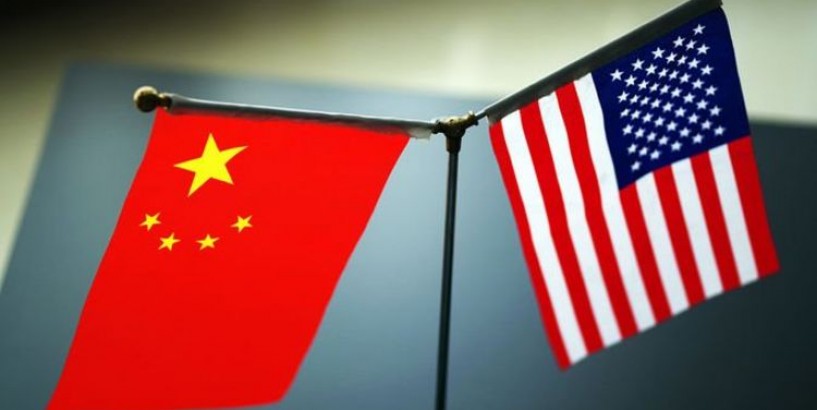Sign up for FREE now and never miss the top Royal stories again! SUBSCRIBE Invalid email We will use your email address only for sending you newsletters. Please see our Privacy Notice for details of your data protection rights.
The two countries have been in a war of words for weeks as the outbreak of COVID-19 led to mistrust in reporting figures and commerical trade deals.
Related articles China lockdown: Fears grow of new outbreak in Chinese region China demands BIGGER budget for military as tensions rise with US A recent survey by Deutsche Bank’s big data platform dbDIG showed that the two countries consumers have started swearing off the others products.
The US has seen 41 percent of Americans say they would not buy a “Made in China” product again.
China alternatively has seen 35 percent of people say they would avoid buying products “Made in USA”.
Apjit Walia, an analyst at Deutsche Bank, said the survey results indicate a rise in commercial nationalism and a growing distaste for globalisation, as both economies emerge from the coronavirus crisis.
READ MORE: Mysterious new coronavirus outbreak hits China - 108 MILLION now back into lockdown
CONSUMERS in China and the US have started to show mistrust in other countries products (Image: PA)
The two countries have been in a war of words for weeks as the outbreak of COVID-19 led to mistrust in reporting. (Image: PA) In a separate US consumer survey of 1,012 adults conducted May 12 to May 14, conducted by Washington-based business advisory FTI Consulting, just over 40 percent of Americans said they won’t buy products from China.
The survey also showed that 78 percent of respondents said they would be willing to pay more for a product if the company had moved manufacturing out of China.
Of those Americans surveyed, 55 percent said they did not think China could be trusted to follow through on its commitments to purchase US goods in the phase one trade deal signed in January.
Lastly, 66 percent said they favour raising import restrictions over the pursuit of free-trade deals as a better way to boost the US economy.
A recent survey by Deutsche Bank’s big data platform dbDIG showed that the two countries consumers have started swearing off the others products. The US has seen 41 percent of Americans say they would not buy a “Made in China” product again. (Image: PA) Analysts have said that businesses are facing pressure from shareholders, regulators and governments to localise supply chains and make them more resilient to future shocks, like the current pandemic.
Marie Owens Thomsen, global head of investment intelligence at Indosuez Wealth Management, said: “China has risen in an eye-watering fashion so that has provoked anxiety in
Western nations seeing their own countries’ prominence in the world economy being degraded as a result of this.”
Sulmaan Khan, professor of international history and Chinese foreign relations at the Fletcher School at Tufts University, said that China’s assertive diplomacy to protect national security has added to distrust in its businesses.
He said: “You do want a strong defence budget.
“But you don’t want to spend so much that it cannibalises the rest of the economy and then the whole country just doesn't function as it should.”
DON'T MISS
Italy feared to be 'China's Trojan horse' in propaganda weapon [INSIGHT]
Trump threatens permanent freeze of WHO funding in MAJOR blow [ANALYSIS]
China OUTRAGE: Xi Jinping accused of LYING bold coronavirus claim [CLAIM]
Related articles China accuses Trump of ‘shirking’ responsibilities Coronavirus news: Pandas tested for COVID-19 The US’ commercial mistrust of China has also been boosted by US President Donald Trump’s outspoken criticism of the Chinese government.
The president has blamed Beijing for the pandemic and has accused the countries leaders of hiding the scale of the pandemic from the world.
Walia said: “Tempers and emotions are running high in both populations and the politicians know this very well, making the matter more complicated as it is an election year in the US.”
The two countries have also recently found an uneasy settlement to a long running trade war, that is now threatened by the tensions from the pandemic. (Image: PA) The two countries have also recently found an uneasy settlement to a long running trade war, that is now threatened buy the tensions from the pandemic.
On January 15, China and the US signed a “phase one” trade deal.
As part of the deal, China agree to buy an additional $200 billion of American goods and services over the next two years.
The deal results in the suspension of a planned December tariff on around $162 billion in Chinese goods, with an existing 15 per cent duty on imports worth around $110 billion halved.









